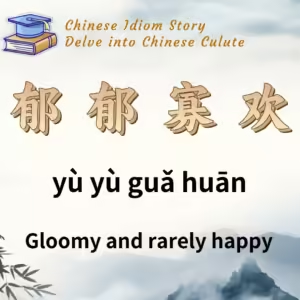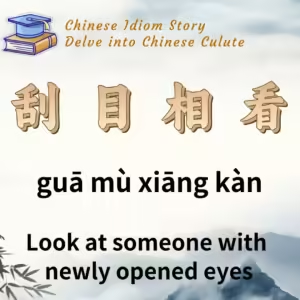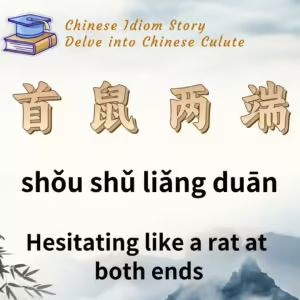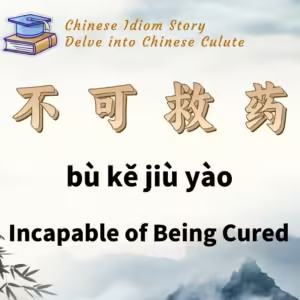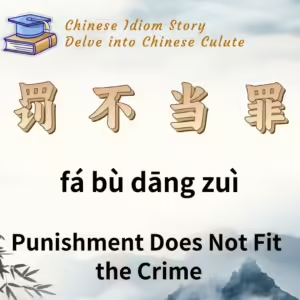
Chinese Idiom: 恶贯满盈 (E Guan Man Ying)
English Translation: Evil deeds strung together until the rope is full
pīn yīn: è guàn mǎn yíng
Idiom Meaning: This idiom refers to someone whose wickedness and crimes are so numerous that they have filled up the rope like beads on a string. It implies that the person has committed so many heinous acts that the time for their punishment has finally arrived. The idiom is used to describe individuals who are guilty of extreme and unforgivable wrongdoing, having reached the point where retribution is inevitable.
Historical Source: Shangshu · Taishi (《尚书·泰誓》)
Idiom Story:
In the final years of the Shang Dynasty, the infamous King Zhou (纣王) ruled with cruelty and decadence, engaging in extreme acts of violence and oppression. His tyrannical behavior sparked widespread resentment among the common people and even the feudal lords, who no longer viewed him as a legitimate ruler.
At the same time, a virtuous ruler named Ji Chang (姬昌), later known as King Wen of Zhou, gained support for his advocacy of benevolent governance, which stood in stark contrast to the cruelty of King Zhou. However, King Zhou saw Ji Chang as a threat to his reign and had him imprisoned.
After Ji Chang’s death, his son Ji Fa (姬发), known as King Wu of Zhou, succeeded him. Ji Fa decided to unite the feudal lords and launch a righteous campaign against King Zhou. With the support of the people, who despised King Zhou’s tyranny, Ji Fa raised an army to overthrow the Shang Dynasty.
Before leading his forces across the Yellow River to engage King Zhou’s army in the decisive Battle of Muye, Ji Fa gave a powerful speech to his troops. He listed the numerous atrocities committed by King Zhou, describing him as someone whose wickedness had reached its peak, and declared that King Zhou’s evil deeds were now “full,” like beads strung on a rope. Ji Fa urged his soldiers to fight courageously, knowing that they were ridding the people of a tyrant whose crimes could no longer go unpunished.
The people, fed up with King Zhou’s cruelty, lent their full support to Ji Fa’s cause. King Zhou’s own troops, disheartened and despising their leader, did not fight with conviction. As a result, King Zhou’s army suffered a crushing defeat. In the end, King Zhou took his own life by setting his palace on fire, marking the fall of the Shang Dynasty and the rise of the Zhou Dynasty.
The phrase “恶贯满盈” comes from this moment in history and describes King Zhou’s wickedness, symbolizing the inevitable downfall of those who accumulate too many evil deeds. The idiom is now used to describe anyone whose immoral actions have finally reached a breaking point, where punishment and justice are unavoidable.

